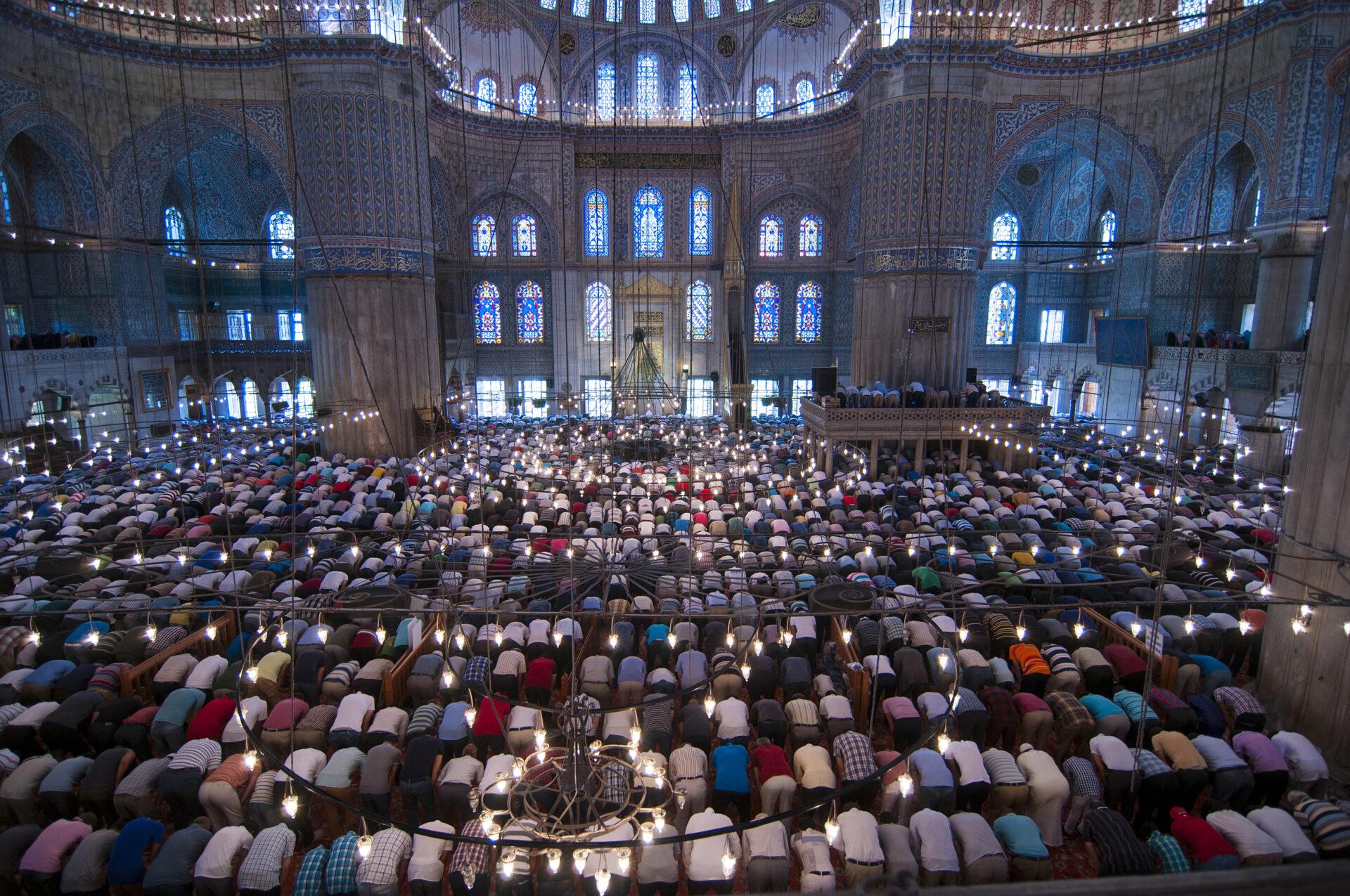A World of Meaning or Meaninglessness
Throughout history, societies have wrestled with a critical choice about the nature of the world and life itself. Human beings cannot live without a sense of meaning and purpose. Yet, we often forget how deeply our presuppositions about reality shape every dimension of our lives.
At the core of the modern struggle in technology, politics, culture, and religion is the question of whether our world is ultimately governed by chance or necessity. Does randomness rule, or does a higher design, ordained by the God of Scripture, define our place and responsibilities?
This question of chance or necessity resonates deeply in debates about Socialism and Predestination, two seemingly disparate concepts that are intricately intertwined. One asserts a humanly imposed order through state power, while the other proclaims God’s total sovereignty over creation and history.
Beneath the complexities of economics and theology lies a profound connection: The question of who truly governs the world… God or humanity?
Chance or Necessity?
If chance were to be the guiding force of the universe, our reality would be a collection of brute facts: meaningless occurrences without interpretive context. In such a world, where everything is a product of random collisions, ideas such as reason, language, and moral law lose their foundation.
Words point to meaning, but in a purely random world, there can be no ultimate meaning to point toward. This leads to a profound sense of chaos and futility, where existence has no rational design and language itself becomes a painful exercise in futility.
In contrast, if necessity describes reality, then we live in a universe established by meaningful intent. At the heart of Scripture is the belief that God’s creative power undergirds all things. Nothing is random. Nope. Nothing is meaningless. From the smallest detail of nature to the largest scale of cosmic history, all events come under the ordering Word of God.
Jesus underlines this conviction in his declaration that not even a sparrow falls to the ground outside the Father’s knowledge and will. This is an inescapable foundation for meaningful human action. We seek knowledge because we intuitively sense there is a design to discover.
God’s Creative Purpose
Christianity asserts the reality of a God who not only creates the world but does so with a definite plan. This plan extends to all creatures and all events, giving coherence to the tapestry of life. Far from rendering human reason or research unnecessary, God’s sovereignty fuels genuine inquiry because every corner of creation bears the imprint of His will.
We can learn, explore, and invent precisely because God has given every fact an inherent meaning. Even if finite minds cannot see the total picture, we live and act confidently that there is a picture, not a swirl of chaos, as old Epicurus said back in the day. The biblical perspective also teaches that human beings bear the image of this Creator. Despite the Fall, which distorts and corrupts us, we remain wired for truth, righteousness, stewardship, and knowledge.
Look, we possess a thirst for meaning… a longing for structure, for moral law, for comprehensive order. Where the biblical vision of a structured universe falls away, other systems rush to fill the vacuum.
Predestination as a Doctrine
The biblical doctrine of predestination has sparked vigorous debate, yet it lies at the core of grace. It proclaims that God’s initiative saves us, and this necessarily includes His foreknowledge and governance of human destiny.
A lot of folks bristle at the idea of predestination, fearing it denies personal freedom. But the alternative is to see ourselves as mere byproducts of impersonal forces, whether genetic or environmental. Classical Culture and its paganism placed human beings in the determinative grip of fate. Rationalists once clung to a view of a rationally ordered nature, but Darwin’s theory of evolution replaced nature’s supposed necessity with randomness, leaving human life adrift.
If there is no transcendent source of order, and if nature is ultimately an arena of blind, meaningless conflict, then humanity is the sole remaining candidate for securing necessity and law, most often embodied in the state. The path from the denial of God’s sovereignty to the assumption of total power by human governments has been a consistent pattern in modern times.
Nature’s Determinism Revisited
The Enlightenment substituted God with nature, imagining the world as a grand machine. This partially deistic approach once gave scientists and philosophers confidence in the appearance of stable laws. But Darwin shattered that confidence with a vision of life as an unending evolutionary struggle. Equally disconcerting, he realized that if the human mind evolved randomly from lower organisms, certainty itself might be illusory.
Karl Marx and Friedrich Engels enthusiastically embraced Darwin because he dispensed with any divine purpose. In their eyes, the loss of transcendent guidance made socialism logically inevitable.
Where previously one might see nature as a rational order, now the only lawgiver left is human invention, practically speaking, the state. Socialism, with its vision of collective order, is a modern form of predestination: it aims to impose total planning through political power, effectively supplanting a God whose laws have been dismissed.
The Ascent of Socialism
Whether we label it socialism, communism, or a more subtle statist framework, the core feature is the expansion of government’s control over society. Modern cultures that have largely abandoned faith in divine order seek meaning in centralized planning and regulation. Socialism then meets a religious need: it promises an overarching purpose in a world supposedly bereft of divine structure.
However, this ‘divine structure’ is not the same as the divine sovereignty advocated in this essay. The divine sovereignty we argue for is not about the state’s control over society, but about a higher, transcendent order that provides meaning and purpose to our lives. Yet socialism fails to provide a coherent morality beyond existential and situational tactics.
Leftist thought shouts slogans like “power to the people,” but behind such rhetoric is often the consolidation of power by a select bureaucracy or party apparatus. Historically, this centralization always degenerates into oppressive power struggles. Because there is no higher authority than the state, the exercise of power itself becomes the highest good. Years ago, Aleksandr Solzhenitsyn documented the brutality of such regimes, which view their own citizenry as the primary threat much like today.
An ever-present terror of dissent compels socialist states to use technology to surveil, confine (lock-down), or eradicate perceived enemies.
This dynamic… power for the sake of power… leaves cultures impoverished, not only in resources but in genuine community. It also corrupts moral life. With no transcendent anchor, right and wrong collapse into manipulative categories wielded by those at the top. Behind outward promises of free healthcare, guaranteed income or free housing is an attempt to render populations dependent and malleable, trading personal liberty for meager benefits doled out from above.
Socialism and Morality
The biblical vision of predestination, by contrast, does not rob human beings of dignity or moral responsibility. Quite the opposite: God’s power is inherently just and righteous, never gained at the expense of His creation. He sustains the entire cosmos without diminishing life.
In the socialist model, the state accrues power by stripping its citizens of freedom and productivity. Socialism enforces a form of servitude, eroding initiative and tying every facet of living to bureaucratic controls. The question asked by the Psalmist resonates: “Shall the throne of iniquity have fellowship with thee, which frameth mischief by a law?” When the foundation of justice is replaced by flawed human will, legality becomes a vehicle of oppression.
Over time, this pattern illustrates that a culture’s center cannot be an idol of the state. The repeated failures and brutalities of totalitarian regimes illustrate that the seat of divinity belongs to God alone. In the absence of that truth, we find either anarchy or the worst forms of tyranny.
Civilization vs. Barbarism
Civilization, as the extension and formal organization of a cultural faith, can wither when its religious roots decay. A living faith that once gave light to art, philosophy, law, and governance no longer invigorates society if its source of truth is dismissed.
This decay has long been unfolding in the modern West. The Enlightenment severed civilization from Christian theology, insisting that human reason alone could sustain moral and social order. Initially, this impetus existed primarily among elites, artists, writers, and rulers. Over time, these ideas took hold in the broader population through mass education and media.
As the Christian faith weakened, the impetus for moral responsibility and stable laws also weakened. Optimistic visions that a purely secular worldview would produce universal harmony have proven painfully naïve. At times, small movements have embraced the environmental or Romantic notion that nature alone provides an alternative to the biblical framework.
Others have placed unquestioning confidence in the fifty-one percent of democracy. Still others have turned wholeheartedly to socialist planning. But all of these attempt to mimic or replace the stability that only a transcendent anchor can securely provide.
The Christian Mandate for Society
Scripture offers a different template for building and sustaining civilization. When we acknowledge the sovereignty of God, we place ourselves under a moral order that limits state power. We also acquire a foundation for genuine liberty because true liberty grows in the light of God’s law. Biblical law, taught throughout both the Old and New Testaments, is not a grim boundary hemming us in… it is a safe path that leads us away from injustice, envy, and the destructive illusions of human self-deification.
When believers lose sight of this vision… succumbing to political obsessions, hollow, “end times” eschatological speculations, or a retreat into personal piety… they leave a vacuum easily filled by statist ideologies. Yet Christ’s prayer remains unequivocal: “Thy kingdom come, thy will be done in earth, as it is in heaven.”
This commission draws believers into every sphere, from governance and economics to business, education, arts, and family. In contrast to the top-down power model of socialism, the biblical model transforms society from within, regenerating hearts and minds while upholding just authority.
Far from a call to passive spirituality, biblical teaching ignites the active reformation of entire communities. In early Christian art, the scene of the transfiguration of Christ was often central, symbolizing not merely the transformation of Christ but the future of humanity and civilization under His reign.
This vision underscores the belief that when Christ is glorified, the world itself stands in line for renewal. Culture, politics, and daily life can undergo this transfiguration when believers live out their calling in steadfast obedience.
Regeneration over Revolution

The proper response to oppressive socialism or any godless system is not a violent upheaval. Scripture does not call us to build the kingdom of God through coercive means or to trust in armed rebellion to accomplish spiritual ends. Instead, we recognize that Christ changes hearts, which in turn changes societies.
Whenever a revolution has attempted to impose its own brand of paradise overnight, the result has been chaos and bloodshed rather than lasting progress. Lenin’s dream of an immediate utopia collapsed into the terror of purges and political prisons, and the pattern recurs wherever an unbiblical concept of authority claims the throne.
A vibrant and proactive faith can achieve far more than reactionary hostility. As people come to know God’s Word, they learn a true definition of freedom: one guided by moral law, dedicated to the love of neighbor, and anchored in the service of the living God. Such faith must be worked out in all facets of life, not confined to Sunday rituals or private beliefs. This is how a genuine and upright society grows.
Freed by Christ for a Hopeful Future
The truth is, every civilization rests on a premise of authority. If authority is rooted in humans alone… whether in democratic majorities or socialist elites… there will inevitably be flaws, oppression, or even enslavement. Where authority is rooted in the sovereign, triune God, the world enjoys moral parameters that uphold freedom rather than undermine it. Humans become responsible stewards of a divine order, not would-be deities clamoring for total power.
Socialism, in its various forms, aims to be the all-encompassing planner of human destiny. Yet it cannot instill true righteousness, nor can it bestow grace. It aspires to the kind of omnipotence that only God possesses, and in doing so, it inevitably clashes with the liberties and moral dignity of individuals. This does not mean that Christians abandon social responsibility. On the contrary, the kingdom of God engages the world’s problems by renewing hearts and guiding institutions to align with God’s justice.
The biblical doctrine of predestination does not thwart our freedom. Instead, it tells us that every hair on our heads is numbered, and every aspect of life is under God’s providence. That profound care and government should inspire confidence. Believers need never seize power in a desperate bid to guarantee order… order already belongs to the Lord. We need only align our efforts in every sphere with His holy will.
The world’s longing for meaning is inescapable. The modern drift away from faith has led us toward a wide range of political and cultural experiments. Most are attempts to locate a secular source of law and purpose. History repeatedly reveals the limits and even brutality of these experiments.
In the end, there can be no substitute for the absolute and gracious sovereignty of God. If the Son makes us free, we are free indeed… a freedom that does not deny legitimate authority but rather exalts a higher law that encourages human flourishing under the peace of Christ. That’s the only sure and safe future for all civilizations.









